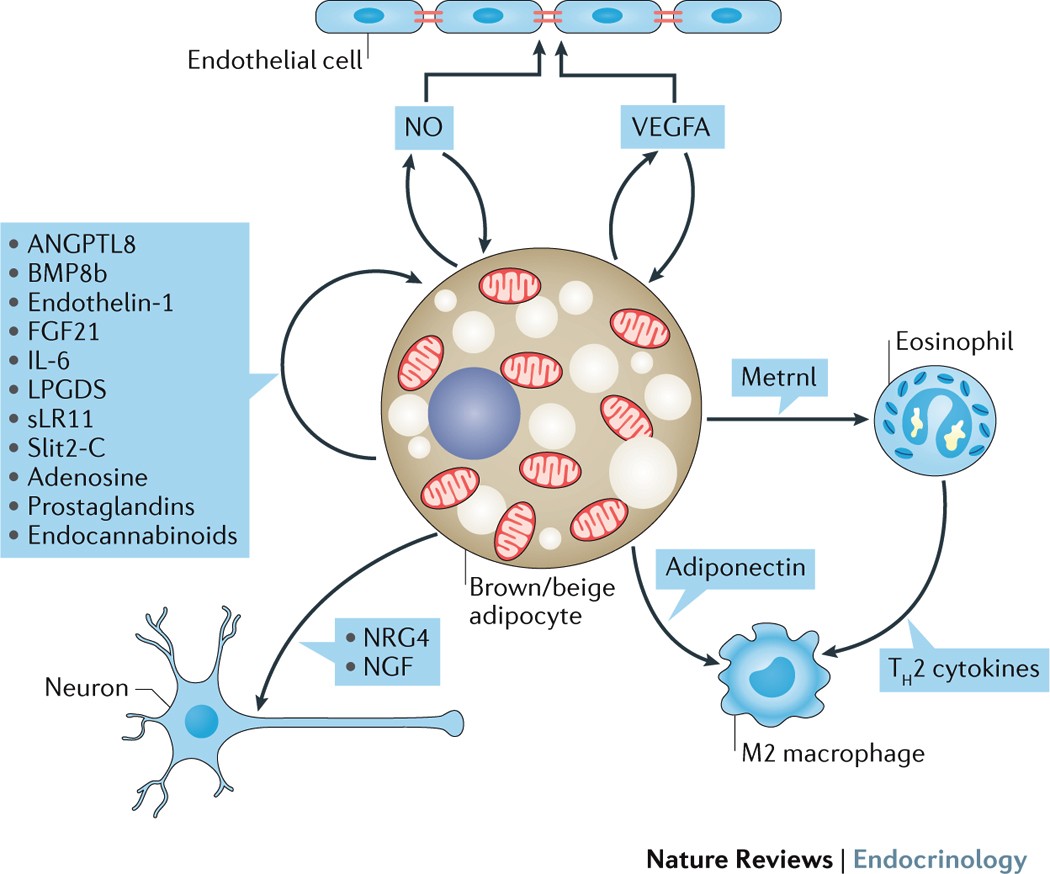Obesity refers to a certain degree of obvious overweight and thick fat layer, which is a state caused by excessive accumulation of body fat, especially triglycerides. Excessive food intake or changes in the body’s metabolism lead to excessive accumulation of fat in the body, resulting in excessive weight gain and causing pathological, physiological changes or latency in the body. Therefore, for obese people, excessive body fat is undoubtedly the biggest enemy. However, studies in recent years have gradually discovered that not all fats are the culprit responsible for human obesity. There is a special type of fat in the human body, which can help the body burn lipids and sugars and promote energy consumption.
This type of fat is the brown fat that has attracted attention since its discovery, and the beige fat that was discovered later. There are a large number of mitochondria in brown adipose tissue, and it is these mitochondria that play a role in producing heat. Subsequently, a large number of studies hope to explore the formation mechanism of brown fat and find a way to make the body more inclined to produce brown fat instead of white fat.

Recently, a study published in the journal Nature revealed the key mechanism of brown fat production. The study found that a cytokine can cause fat cells to brown and produce heat. This discovery is expected to provide a new target for the treatment of obesity, type 2 diabetes and other diseases.
In this study, in order to find factors that affect the production of brown fat, the researchers screened the sera of obese people and found cytokines whose expression was significantly decreased, including interleukin 27 (IL-27). IL-27 is a member of the IL-12 cytokine family. It is a heterodimeric cytokine composed of the expression product of Epstein-Barr virus inducible gene 3 (EBI3) and IL-27p28. IL-27 is expressed by antigen-presenting cells and interacts with a specific cell surface receptor complex called IL-27 receptor (IL-27R). Existing studies have shown that IL-27 plays an important role in inflammation and anti-inflammatory processes. However, recent studies have found that the nucleotide sequence encoding IL-27 is associated with body mass index and insulin resistance. What’s more interesting is that after patients undergoing bariatric surgery and losing weight, their levels of IL-27 have risen significantly. This series of phenomena all show that IL-27 seems to be closely related to the obesity process.
In order to verify the role of IL-27 in this process, the researchers constructed genetically engineered mice that knock out the IL-27 receptor. After they provided a high-fat diet, they found that these genetically engineered mice that knocked out the IL-27 receptor were more likely to be obese than normal mice in the control group, and had more serious glucose intolerance and insulin resistance. Therefore, the relationship between IL-27 and obesity has been confirmed. So, how does this cytokine affect the metabolic process? Through further research, it was found that under the condition of normal food intake, the energy expenditure of these IL-27 receptor-deficient mice was significantly reduced compared with ordinary mice. In addition, these mice are less resistant to cold environments, which means that the process of generating heat through energy consumption is inhibited. In addition, the level of uncoupling protein 1 (UCP1) in IL-27 knockout mice was significantly reduced regardless of whether they were fed high-fat food or normal food. Mitochondrial protein UCP1 is known to be indispensable in the thermogenesis of brown and beige fat. After re-injection of IL-27, UCP1 levels were also restored. These phenomena indicate that IL-27 affects the body’s metabolism by promoting the thermogenesis of brown and beige fat.
In addition, this research has also subverted our usual understanding of cytokines. This is also the first discovery that this cytokine can directly act on fat cells, breaking the inherent view that IL-27 specifically targets immune cells. The study found that IL-27 can promote the browning of white fat cells and the ability of brown or beige fat cells to produce heat. Furthermore, it reveals the signaling pathway that IL-27 affects the production of brown and beige fat. Using this pathway to provide new targets and potential drugs for the treatment of obesity and related metabolic diseases is the main direction of the next research.
